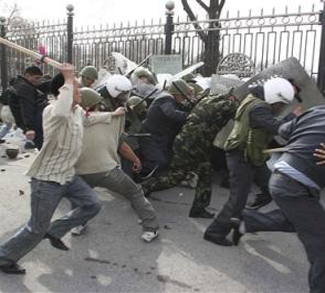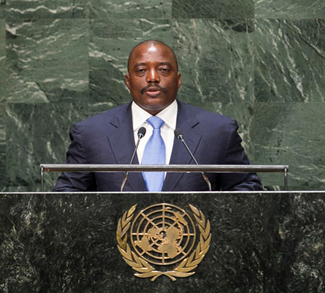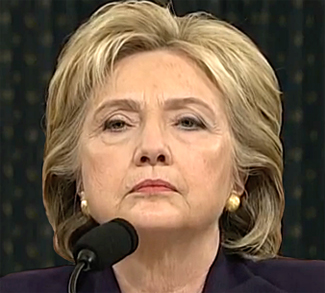Weak public institutions, corrupt government officials, criminal entities within the state, and political instability are recurrent problems in the Kyrgyz Republic. With a population of six million and a territory spanning 77,200 square miles, landlocked Kyrgyzstan has large swathes of sparsely populated rural areas. More importantly, over 80% of this rural population is struggling with poverty. Corruption and poverty are concomitant factors in countries that have weak governance; in the case of the Kyrgyz Republic, it is the second poorest country in Central Asia, with a per capita GDP of just $1,300 in 2014. An estimated 12% of the Kyrgyz population is chronically food-insecure, living on an average $637 per year, and 37% of the population is living under the poverty line ($1.90 per day). In 2014, the GDP of this country was $7.4 billion, and the Gini coefficient was 27.4, which indicates an abysmal discrepancy in the distribution of income. It is very likely that poverty-stricken Kyrgyzstan may revolt as its authoritarian regime is not fighting corruption assertively. More specifically, the government of Kyrgyzstan must make ground-breaking institutional reforms with respect to corruption in order to develop its stagnant economy. It must begin lifting the Kyrgyz people out of poverty, otherwise, this country may soon be enduring its third popular uprising in less than 11 years.
It is a strenuous task for a state to achieve prosperity when corruption stands in the way. In the case of Kyrgyzstan, the country has been facing significant governance challenges since its independence in 1991— notably corruption in all sectors of the economy and at all levels of the state.
In Kyrgyzstan, agriculture accounts for over 20% of GDP—wool, meat, dairy, livestock, wheat, sugar, and tobacco. The country is hydropower and mineral-resources rich—gold, petroleum, coal, uranium, lead, zinc, and rare earth metals— which, in combination with industrial output accounts for over 45% of the GDP. Remittances, on the other hand, represent roughly 31%—$2.6 billion—of the GDP with over 800,000 Kyrgyz working primarily in Russia, Western Europe, Kazakhstan, and the U.S. Kyrgyzstan, a nation with a substantial amount of natural resources, still finds itself in a critical economic situation.
Bureaucratic corruption has been institutionalized in Kyrgyzstan, and citizens are often asked to pay bribes in their interactions with public servants. Pursuing this further, Transparency International ranks Kyrgyzstan 136th on its 2014 corruption perception index among 175 countries. Kyrgyzstan scored 27 (where 0 represents highly corrupt and 100 very clean).
The corruption dilemma in Kyrgyzstan foments nepotism. The FBI reported on former President Akayev about the fate of over $100 million in Pentagon sub-contracts awarded to companies controlled by the Akayev family members. The Bureau suspected that the funds were embezzled by the presidential family before they fled the country to Russia. These suspicions were confirmed when Aidar Akayev, son of ex-President Askar Akayev, was accused of extortion and money laundering. Aidar, an elected member of parliament, fled Kyrgyzstan along with his parents during the uprising of 2005. He had retained his seat in parliament but was stripped of parliamentary immunity for prosecution. Bermet Akayeva, daughter of ex-President Akayev, was also a former member of the parliament. Bermet was accused of pressuring the regional court in Kemin province. Many believe that the Akayev family ran the country like a private estate, and extortion, bribes and selling government jobs to the highest bidder were common practices. “We estimate Akayev amassed a personal fortune of around $800 million,” said Edil Baisalov, president of the Coalition for Democracy and Civil Society.
On the other hand, family members of former President Bakiyev held prominent positions in the government ; Janybek Bakiyev, the brother of the president, was head of the State Protection Service (SPS); Maksim Bakiyev, the younger son of the President, is said to have amassed hundreds of millions of dollars during the presidency of his father; Akmat Bakiyev, the younger brother, is said to be the de facto ruler of Jalal-Abad Province; Marat Bakiyev, another brother, was ambassador of Kyrgyzstan to Germany while yet another brother; Adyl Bakiyev was an adviser to the ambassador of Kyrgyzstan to China.
During the term of President Atambayev, some arrests of high-level politicians have been made, including politicians close to the executive office. Melis Myrzakmatov, former mayor of Osh, was found guilty and was sentenced to 7 years. Myrzakmatov fled the country before being sentenced. Despite sporadic arrests, corruption is still deeply entrenched in the Kyrgyz government, and although efforts to eradicate corruption have been made, the status-quo on corruption remains stagnant. The political nucleus of Kyrgyzstan is still very similar to the times of Bakiyev and Akayev; the president of the country may have been replaced, but most of the parliament members and government officials are still holding the same positions and the relationship between criminals and politicians remains.
The collapses of the Kyrgyz governments under Akayev (2005) and Bakiyev (2010) were a demonstration of both how fragile the Kyrgyz state has been and remains, and of how easily it collapses under the weight of massive corruption. Corruption and years of cronyism and clientelistic practices have fueled citizen discontent and political instability. Recent history demonstrates that the Kyrgyz people can easily revolt and are not willing to remain passive, especially under the poor living conditions they are enduring.
Another revolution could be on the way unless President Atambayev takes significant steps against corruption. Pivotal changes must be adopted in order to sanitize public institutions and the private sector. Also, criminal organizations must be eradicated from the governmental structure. Nepotism and clientelism must be approached with an objective initiative in order to start restructuring the governance from all angles. An alternative is to adjudicate an international judge to the justice system of Kyrgyzstan in order to bring neutrality to its judicial processes—similar to CICIG in Guatemala with Judge Ivan Velazquez. Finally, NGOs must be empowered as they play a substantial role in the fight against corruption. At this contention point on governmental affairs, poverty-stricken Kyrgyzstan is prone to turmoil; therefore, corruption must be dealt with diligently in order to avoid an uprising and the catastrophic bloodshed that would go with it.




